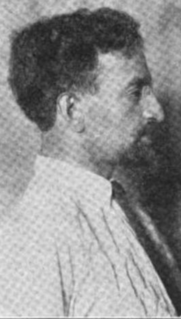A Quote by Charles Baudelaire
There can be no progress-real, moral prgress-except in the individual and by the individual himself.
Related Quotes
Democracy maintains that government is established for the benefit of the individual, and is charged with the responsibility of protecting the individual, and is charged with the responsibility of protecting the rights of the individual and his freedom in the exercise of his abilities. Democracy is based on the conviction that man has the moral and intellectual capacity, as well as the inalienable right, to govern himself with reason and justice.
Prayer is intended to increase the devotion of the individual, but if the individual himself prays he requires no formula; he pours himself forth much more naturally in self-chosen and connected thoughts before God, and scarcely requires words at all. Real inward devotion knows no prayer but that arising from the depths of its own feelings.
The reaction to any word may be, in an individual, either a mob-reaction or an individual reaction. It is up to the individual to ask himself: Is my reaction individual, or am I merely reacting from my mob-self? When it comes to the so-called obscene words, I should say that hardly one person in a million escapes mob-reaction.
Faith is precisely the paradox that the single individual as the single individual is higher than the universal, is justified before it, not as inferior to it but superior - yet in such a way, please note, that it is the single individual who, after being subordinate as the single individual to the universal, now by means of the universal becomes the single individual who as the single individual is superior, that the single individual as the single individual stands in an absolute relation to the absolute.
The integrative tendencies of the individual operate through the mechanisms of empathy, sympathy, projection, introjection, identification, worship- all of which make him feel that he is a part of some larger entity which transcends the boundaries of the individual self. This psychological urge to belong, to participate, to commune is as primary and real as its opposite. The all-important question is the nature of that higher entity of which the individual feels himself a part.
The insistence on truthfulness does not disturb the freedom of the individual. The social obligation implied in Satyagraha turns the freedom of the individual into moral freedom. An atheist is free to say or to do what he likes, provided he does what he says and says what he does. So, in the context of social relations, the freedom of the individual is moral freedom.
The little individualist, recognizing his individual impotence, realizing that he did not possess within himself even the basis of a moral judgement against his big brother, began to change his point of view. He no longer hoped to right all things by his individual efforts. He turned to the law, to the government, to the state.






































